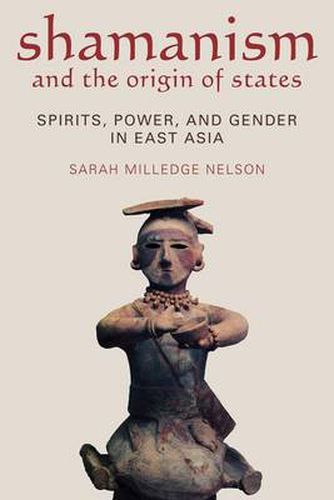Readings Newsletter
Become a Readings Member to make your shopping experience even easier.
Sign in or sign up for free!
You’re not far away from qualifying for FREE standard shipping within Australia
You’ve qualified for FREE standard shipping within Australia
The cart is loading…






Sarah Milledge Nelson’s bold thesis is that the development of states in East Asia-China, Japan, Korea-was an outgrowth of the leadership in smaller communities guided by shamans. Using a mixture of historical documents, mythology, archaeological data, and ethnographic studies of contemporary shamans, she builds a case for shamans being the driving force behind the blossoming of complex societies. More interesting, shamans in East Asia are generally women, who used their access to the spirit world to take leadership roles. This work challenges traditional interpretations growth of Asian states, which is overlaid with later Confucian notions of gender roles. Written at a level accessible for undergraduates, this concise work will be fascinating reading for those interested in East Asian archaeology, politics, and society; in gender roles, and in shamanism.
$9.00 standard shipping within Australia
FREE standard shipping within Australia for orders over $100.00
Express & International shipping calculated at checkout
Stock availability can be subject to change without notice. We recommend calling the shop or contacting our online team to check availability of low stock items. Please see our Shopping Online page for more details.
Sarah Milledge Nelson’s bold thesis is that the development of states in East Asia-China, Japan, Korea-was an outgrowth of the leadership in smaller communities guided by shamans. Using a mixture of historical documents, mythology, archaeological data, and ethnographic studies of contemporary shamans, she builds a case for shamans being the driving force behind the blossoming of complex societies. More interesting, shamans in East Asia are generally women, who used their access to the spirit world to take leadership roles. This work challenges traditional interpretations growth of Asian states, which is overlaid with later Confucian notions of gender roles. Written at a level accessible for undergraduates, this concise work will be fascinating reading for those interested in East Asian archaeology, politics, and society; in gender roles, and in shamanism.